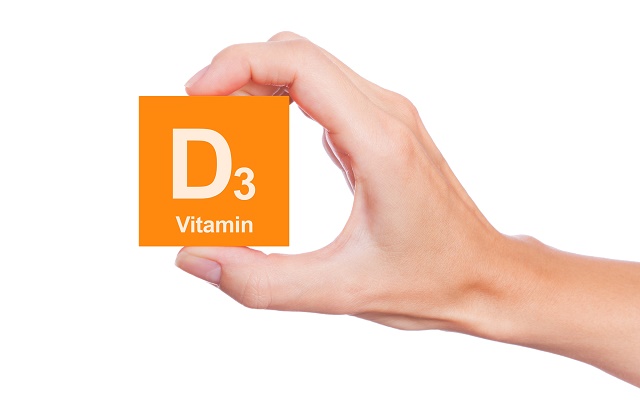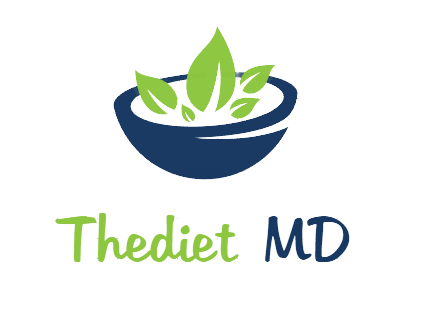According to nutritionist Janiele da Silva Rodrigues, vitamin D3, called cholecalciferol, is vital in forming healthy bones and teeth. But in addition, this nutrient has other benefits for the body.
“Vitamin D has paracrine functions, maintaining immunity, vascular function and cardiomyocyte health, which reduces inflammation and insulin resistance,” explains the nutrition specialist.
All these positive effects can be achieved through regular sun exposure and certain foods. However, the lack of this vitamin in the body is still widespread worldwide, reaching at least 1 billion people.
For this reason, this vitamin’s manipulated form is another way to get D3 and ensure the body’s health. A nutritionist should recommend the appropriate doses according to the patient’s needs. Understand more about this subject!
Table of Contents
What is vitamin D3 for?

What is vitamin D3 for?
Among the main functions of vitamin D3 is maintaining the balance of calcium and phosphorus in the body. As such, it is vital for bone growth, normal nervous system function, and maintenance of bone density.
Speaking of bones, it is essential to emphasize the importance of D3 in children’s growth and bone remodelling in adults. That’s because the presence of this vitamin helps to prevent deformities, pain, fractures and osteoporosis.
Two other roles of this substance are the protection of the skin in the treatment against psoriasis and the modulating effect of the immune system. According to some studies, there is a relationship between vitamin deficiency and the emergence of autoimmune diseases such as diabetes, multiple sclerosis, rheumatoid arthritis, lupus and inflammatory bowel disease.
Other benefits of D3 you can check in the following topics!
Helps prevent and treat cancer
The presence of this vitamin in the body proved to be an essential ally in the fight against cancer, as it regulates the proliferation of tumour cells. Among the types of cancer are prostate, breast and colon, in which the substance acts in prevention. In the case of leukemia, cholecalciferol works better as a treatment.
Prevention of cardiovascular diseases
Hypertension can benefit from D3 for cardiovascular health because it helps regulate heart muscle functions. Thus, it can be the key to preventing problems such as heart attack and hypertension.
Treatment and Prevention of Diabetes Mellitus
Patients with type 1 diabetes can also benefit from this nutrient as it stimulates the body’s insulin secretion. In addition, vitamin D and calcium intake have also contributed to reducing the risk of developing type 2 diabetes.
Prevention and delay of arthritis
A study of more than 29,000 women showed that the greater the intake of cholecalciferol, the less chance the patient has of developing arthritis. This type of vitamin can prevent or delay the development of this problem, as happened in another study carried out with 19 people.
In the latter case, 89% of patients showed improvements in symptom intensity.
What Causes Lack of Vitamin D3?

What causes a lack of vitamin D3?
According to nutritionist Janiele Rodrigues, the lack of this vitamin can occur in individuals who have low-quality food or who are not exposed to the sun properly.
A vegetarian diet, medications (anticonvulsants, antiretrovirals, antifungals and glucocorticoids), intestinal malabsorption syndromes and obesity are also related to the lack of vitamins, scientifically called hypovitaminosis D.
About the problems that may arise due to the absence of this nutrient, the nutrition specialist says that it will depend on the patient’s stage of life. This is because the lack of vitamin D can be felt differently in childhood, adulthood or old age.
“Children can suffer from rickets (bone deformities, ribs, and leg bones); in adults, their deficiency can trigger osteomalacia (demineralization of the bone matrix), and in more severe cases, especially in the elderly, osteoporosis can occur,” he explains. to professional.
Low levels of this nutrient in the body can also affect teeth, making them more susceptible to cavities, as they cause decalcification of tooth structures.
In addition, other signs may appear, such as a higher incidence of infections, irritation, lethargy, worsening of chronic diseases (rheumatoid arthritis), and generalized pain, particularly in the lower back, muscle and bone.
“The lack of this vitamin can trigger numerous consequences, such as weakness and increase in muscle and bone fractures, fatigue, hypertension, inflammation and pain in the teeth, increased body weight gain, infectious diseases and the increase in common cancers,” warns Janiele.
25-Hydroxy: test to find the levels of this substance
The blood test will reveal 25-hydroxy dosages, indicating whether or not there is a vitamin D3 deficiency in the body. With the table below, you can better understand the serum levels of this substance in the body:
Vitamin D3: where to find it and how to take it

There are three ways to guarantee vitamin D3 in the body. The first and most important of these is cutaneous synthesis. “We recommend exposure to the sun in the morning until 10 am and in the late afternoon after 4 pm, for at least 15 minutes”, says Daniele.
The second way is through vitamin-rich foods, and lastly, supplementation. Check below the daily intake values recommended by the Dietary Reference Intakes (DRIS), cited by Janiele Rodrigues:
- Infants: 10 mcg (400UI)
- Children and teenagers: 15 mcg (600UI)
- Adults (men and women): 15 mcg (600UI)
- Adults over 70 years old (men and women): 20 mcg (800UI)
- Pregnant women: 15 mcg (600IU)
- Infants: 15 mcg (600IU).
Foods rich in cholecalciferol
“Vitamin D exists naturally in animal products, such as dairy products, egg yolks, butter, oily fish or fish oils (herring, sardines and tuna) and salmon,” cites the nutritionist.
Therefore, vegetarians and vegans may have the absence of D3 in the body. But, in contact with a nutrition professional, the patient can receive clear and specific guidance on supplementing this vitamin.
Manipulated vitamin
Although there is supplementation, the nutritionist says the ideal is to change eating habits completely. Only in this way can the manipulated vitamin be introduced into the patient’s life, either in the form of capsules or drops.
Furthermore, self-medication is not recommended, as only a nutrition professional can prescribe the necessary amount in each clinical case. Contrary to what you might think, too much vitamin can be toxic.
“Excessive intake of this vitamin can trigger toxicity such as headache, anorexia, nausea, thirst and weight loss; if not corrected, it can trigger excessive bone calcification and hypercalcemia (calcification of soft tissue),” alerts nutritionist Janiele Rodrigues.
Relationship between D3 and K2
Vitamin D3 needs K2 to lock in the body more effectively. Only then can it perform bodily functions and benefit the patient’s health.
“Vitamin K2 is present in animal and vegetable origin, such as green leafy vegetables, milk and dairy products”, cites the nutrition specialist.
Check below the daily K2 intake values recommended by DRIS and mentioned by Janiele Rodrigues in an interview for Remédio Caseiro:
- Infants: 2.0-2.5 mcg/day, depending on age
- Young children: 30-55 mcg/day, depending on age
- Older children and teenagers: 60-75 mcg/day, depending on age
- Adults: 90-120 mcg/day, depending on gender
- Pregnant women: 75-90 mcg/day, depending on age
- Infants: 75-90 mcg/day, depending on age.
What is Vitamin D3?
Despite everything that has already been explained, some people may be confused about the meaning of vitamin D3. So it’s important to remember that this is one of two forms of vitamin D.
Type D3 shares the lead with vitamin D2, also called ergocalciferol. While cholecalciferol comes from animal sources, D2 is found in plants and fungi. And although defined as vitamins, these substances are considered types of prohormones.
But even though they are different, these substances are transported to the liver by the vitamin D binding protein. This nutrient involves many physiological processes in the body, as we saw throughout this article.
Therefore, if you still have questions about what it is for or where to find vitamin D3, it is recommended to consult a nutritionist. This way, you can prevent and treat various illnesses and health problems.
My name is Ellie Lauderdale, MD and I am USA based professional Nutritionist .
I am a Registered Dietitian Nutritionist and board certified specialist in sports dietetics who is trained in integrative medicine. I have worked with hundreds of clients, from those suffering with chronic disease to professional and olympian athletes. My goal is to help optimize you from the inside so that you can feel, perform, and look your best on the outside.

